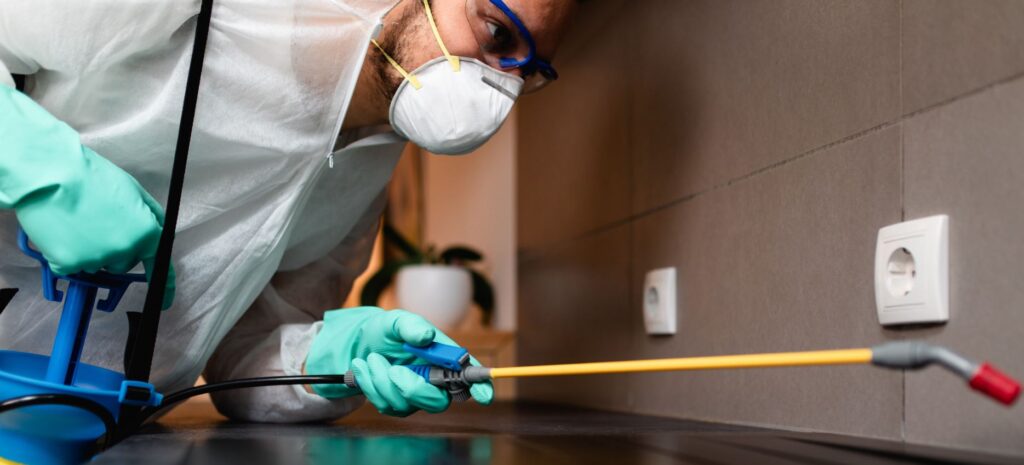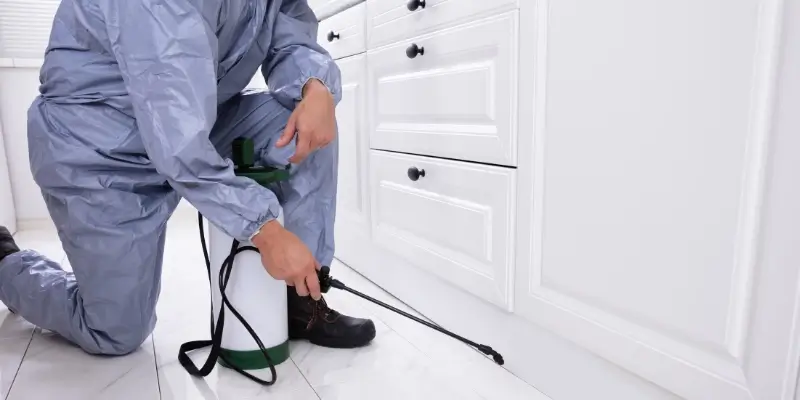Effective Coquitlam Pest Control Solutions for a Pest-Free Environment
Effective Coquitlam Pest Control Solutions for a Pest-Free Environment
Blog Article
Safe and Trustworthy Bug Control for Lasting Protection
Efficient pest monitoring calls for a multifaceted technique that balances ecological honesty with the demand for efficient bug reductions. The nuances of these approaches might not be quickly clear, motivating a more detailed exam of the methods that can lead to sustainable parasite control outcomes.
Recognizing Insect Control Techniques
Pest control encompasses a selection of techniques focused on handling and removing unwanted pests and rats that can threaten both health and wellness and residential or commercial property. Recognizing these methods is important for efficient insect administration.
The key categories of parasite control methods consist of mechanical, organic, and chemical approaches. Mechanical methods entail physical obstacles and catches to avoid pest entrance and capture unwanted varieties. Utilizing screens on home windows or utilizing sticky catches can considerably decrease bug populations without introducing damaging materials - exterminator coquitlam.

Chemical bug control is commonly the most acknowledged technique, using chemicals to remove parasites. These chemicals can be effective yet need to be utilized with caution to prevent damaging effects on non-target types and the atmosphere.
Advantages of Eco-Friendly Solutions
Just how can eco-friendly solutions transform parasite control techniques? The adoption of eco-friendly parasite control methods supplies numerous advantages, substantially improving the efficiency and safety of bug management.

Another advantage is the favorable impact on local biodiversity. Eco-friendly remedies are created to target certain parasites while protecting valuable pests and wild animals, promoting a well balanced ecological community. This strategy aligns with the expanding consumer demand for lasting techniques, boosting the credibility of parasite control service providers.
Integrated Pest Administration Methods
The implementation of green solutions normally leads to the fostering of Integrated Pest Management (IPM) techniques, which further improve bug control efficacy. IPM is an all natural strategy that combines numerous methods to handle insect populaces while decreasing ecological effect. This strategy emphasizes making use of biological, cultural, mechanical, and chemical controls, making sure a lasting and balanced approach of parasite monitoring.
One fundamental element of IPM is the thorough assessment of parasite activity and ecological conditions. By monitoring pest populaces and identifying their life process, specialists can implement targeted interventions that interfere with the pest's habitat or lifecycle, minimizing reliance on chemical pesticides. In addition, social practices such as crop rotation and habitat control can substantially lessen parasite establishment and recreation.
An additional vital element is making use of biological control representatives, such as valuable insects or bacteria, which can normally reduce bug populations. When chemical applications are required, IPM prioritizes using low-risk pesticides and uses them precisely, decreasing direct exposure to non-target organisms and humans.
Including IPM approaches not only enhances bug control efficiency but likewise advertises a safer ecosystem, lining up with the expanding demand for sustainable techniques in pest administration.
Safe Practices for Home Owners
Recognizing the importance of secure techniques in parasite control can empower property owners to effectively take care of parasite issues while safeguarding their health and the environment. Executing safe techniques and safety nets is critical in reducing exposure to hazardous chemicals.
Home owners ought to initially assess their environment for problems that attract bugs, such as standing mess, food, and water waste. On a regular basis cleaning and securing access factors can prevent pests from invading the home. Using all-natural deterrents, such as necessary oils or diatomaceous planet, can provide reliable choices to chemical pesticides.
When chemical treatments are needed, homeowners must go with items that are specifically labeled as risk-free for domestic use. It is important to comply with application standards carefully to prevent too much exposure. Making use of targeted therapies in locations where pests are determined, instead than covering splashing, can substantially lower chemical use.
Finally, preserving open interaction with insect control professionals is vital. Property owners must ask about the safety and security of items made use of and request environmentally friendly options whenever possible. By adopting these secure techniques, home owners can create a healthier living setting while efficiently managing bug problems.

Tips for Long-Term Defense
Establishing an insect administration technique that highlights long-term defense can considerably boost the effectiveness of the risk-free methods previously reviewed. To attain this, homeowners ought to execute regular inspections of their building, focusing rodent elimination on concealed areas such as attic rooms, cellars, and crawl rooms. Early detection of insect task is vital in protecting against infestations from holding.
Furthermore, preserving a tidy setting is essential. This consists of appropriate food storage, immediately cleansing spills, and regularly dealing with trash. These practices decrease attractants that draw pests into the home. Sealing access points, such as fractures around home windows and doors, can effectively block potential parasite gain access to.
Landscape design needs to also be considered; maintaining plants trimmed and pest and control maintaining a distance between plant life and the home lessens hiding areas for parasites. Utilizing all-natural deterrents, such as vital oils or diatomaceous planet, can further discourage problems without resorting to rough chemicals.
Last but not least, teaming up with a professional parasite control service for periodic analyses can give an added layer of protection. These specialists can offer customized recommendations and advanced therapies, making sure that your home remains protected versus pests in the long-term.
Verdict
To conclude, reputable and risk-free bug control needs a diverse strategy that stresses environment-friendly methods and incorporated bug monitoring. By applying natural deterrents, performing routine evaluations, and keeping correct cleanliness, homeowner can substantially minimize insect populaces while protecting advantageous pests and the setting. Partnership with expert insect control solutions boosts the efficiency of these approaches, ensuring customized options that provide long-term security and comfort against future problems.
Efficient insect administration calls for a diverse strategy that stabilizes environmental stability with the need for efficient insect suppression. The adoption of eco-friendly insect control approaches offers many benefits, considerably improving the efficiency and safety and security of insect monitoring.The application of blog environment-friendly options naturally leads to the adoption of Integrated Pest Management (IPM) strategies, which further boost pest control efficacy. exterminator coquitlam. By keeping track of parasite populations and recognizing their life cycles, specialists can implement targeted interventions that interrupt the parasite's environment or lifecycle, lowering reliance on chemical pesticides.In final thought, trustworthy and secure insect control requires a complex approach that stresses environment-friendly methods and integrated insect administration
Report this page